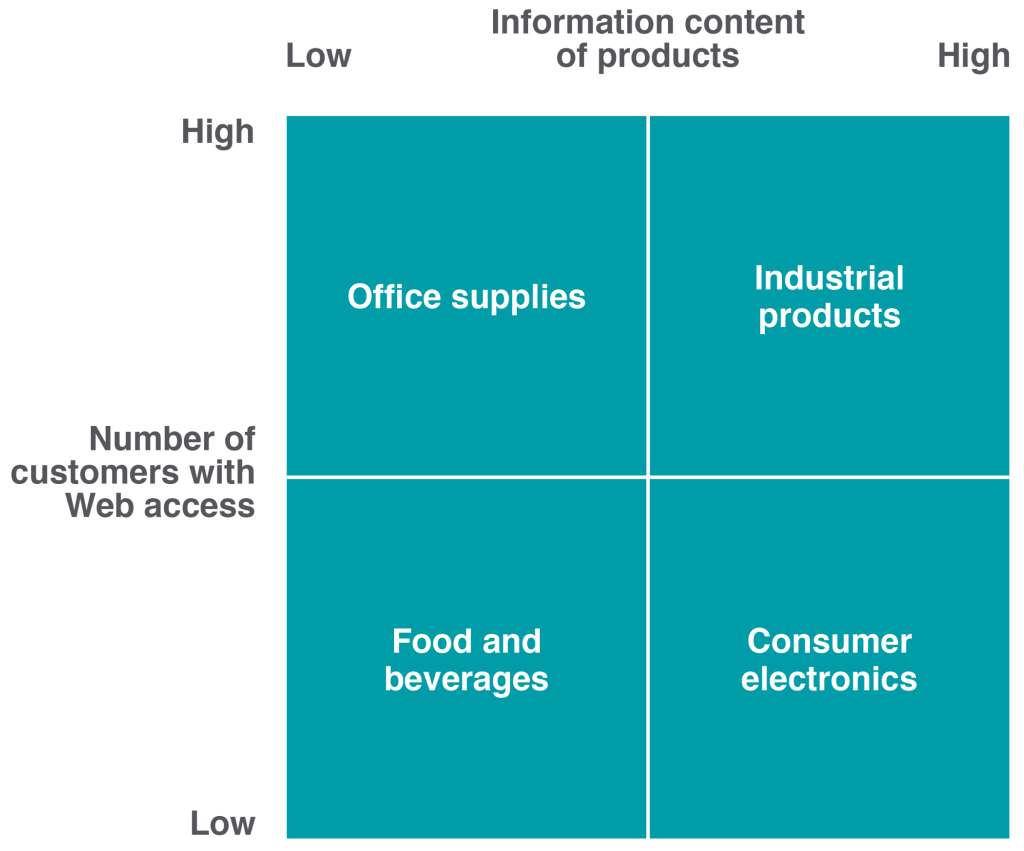13.3 Online Strategy
Every business needs to consider the extent of their online presence. There are two key factors to be considered when considering an online strategy:
- How many existing or potential customers are likely to do business online?
If a significant portion of a company’s customers are internet users, and the search cost for the product or service are reasonably, even moderately high, then an organization should have a considerable online presence; otherwise, it is missing an opportunity to inform and interact with its customers. If a company does not have a website, then there is the risk that potential customers will flow to competitors who have a web presence.
- What is the information intensity of the product?
An information-intense product is one that requires considerable information to describe it completely. The two parameters, number of customers on the web and product information intensity, can be combined to provide a straightforward model (see Figure 13.4) for determining which companies should be using the internet. Organizations falling in the top right quadrant are prime candidates because many of their customers have internet access and their products have a high information content. Firms in the other quadrants, particularly the low-low quadrant, have less need to invest in a website.

Strategic Challenges
Now that we have explored how businesses are leveraging the internet to sell their products and services and the benefits and concerns, it is important to understand the strategic challenges of doing so. Companies often face three critical strategic challenges:
| Demand Risk | Sharply changing demand or the collapse of markets poses a significant risk for many firms. The web can be used to diversify a business by taking new products to new markets. |
|---|---|
| Innovation Risk | Not being adaptable, which can lead to stagnation, and ultimately failure to remain competitive. Businesses need to be open to new ideas, and these ideas can come from customers. The internet allows communication with customers for this purpose. |
| Inefficiency risk | Failure to match competitors’ unit costs–inefficiency risk. The internet can help reduce operating costs, such as information distribution. |
Information Systems for Business and Beyond: 10.4 by Shauna Roch; James Fowler; Barbara Smith; and David Bourgeois is licensed under a Creative Commons Attribution-NonCommercial-ShareAlike 4.0 International License, except where otherwise noted.

